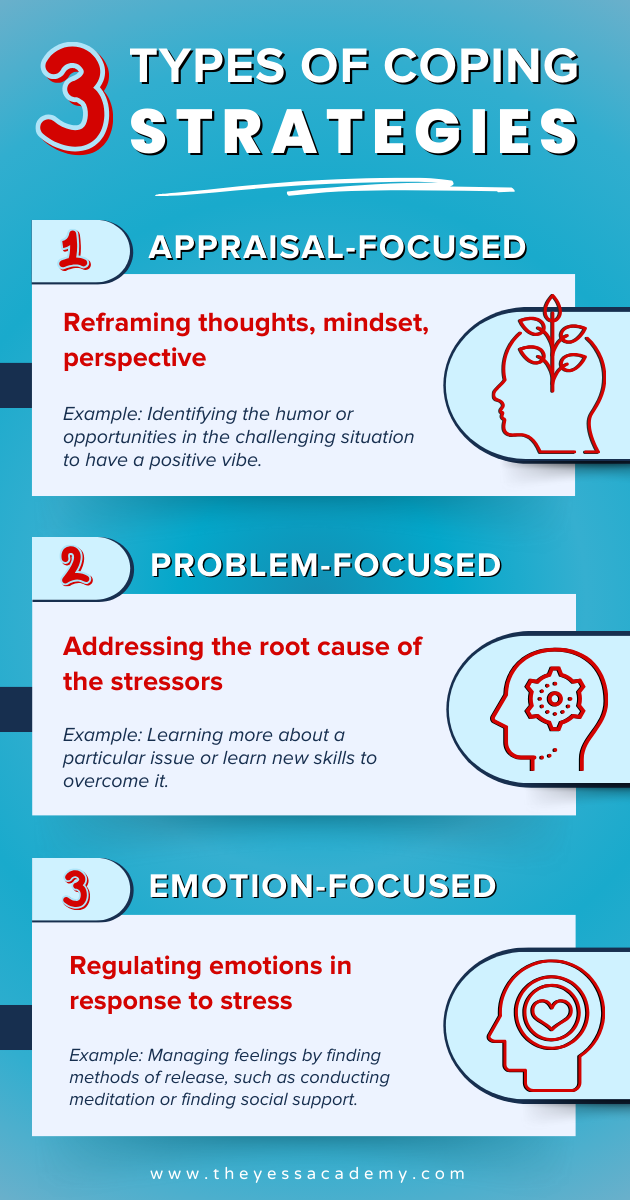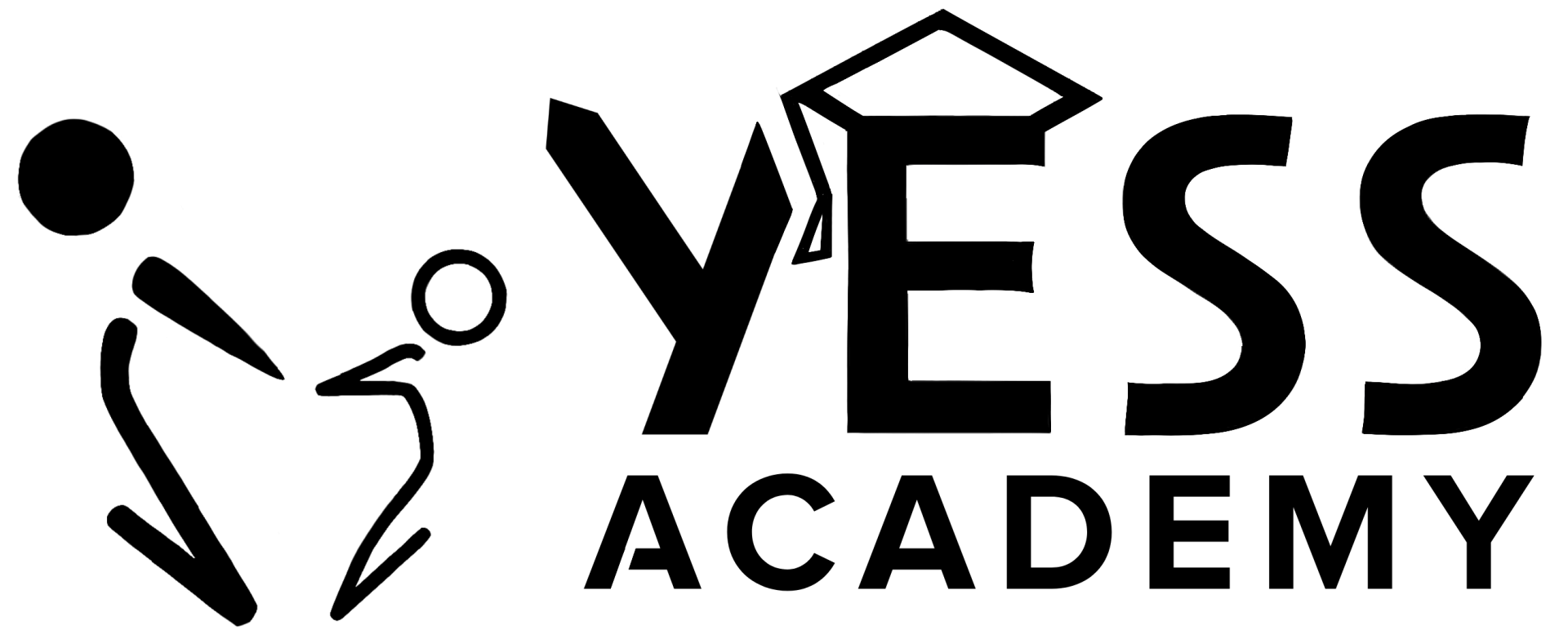Nov 28
Social Emotional Learning & Coping Skills for Students: Navigating Life's Challenges
You’ve probably heard “coping skills,” but what are they really and why do they matter? And - how do coping skills relate to social emotional learning programs like those offered by the YESS Institute?
Coping skills: strategies individuals use to manage stress, regulate emotions, and navigate challenging situations effectively. These skills can either be effective or maladaptive, making a considerable difference in an individual's mental and emotional well-being.
Effective vs. Maladaptive Strategies
Effective coping skills encompass constructive approaches to handling stress and adversity. They promote long-term growth and resilience by encouraging individuals to confront their challenges, learn from them, and develop stronger coping mechanisms for the future. Maladaptive coping skills, on the other hand, provide short-term relief and often have detrimental effects and negative consequences for mental and emotional well-being in the long-run.
Initially, healthy coping skills act as short-term distractions, enabling individuals to momentarily redirect their attention from distressing situations. However, when utilized effectively and practiced consistently, coping skills can facilitate enduring personal growth.
However, it is important to acknowledge that both of these types of coping skills are valid coping skills that manage stress, regulate emotions, and navigate challenging situations, and it can be damaging to harbor shame around certain coping skills. Creating a space where one can share their coping skills without judgment will allow for an individual to be more open about replacing their more maladaptive coping skills for more effective coping skills.
Here are some examples of effective and maladaptive coping skills:
Examples of effective coping skills
Examples of effective coping skills
- Exercise & Physical Activity: Jogging, yoga, or dancing helps release endorphins, the body's natural mood lifters. Exercise is an excellent way to manage stress, anxiety, and depression, promoting both physical and mental well-being.
- Mindfulness & Meditation: Being present in the moment, focusing on breathing, and calming the mind. These techniques can help reduce stress, improve concentration, and promote emotional stability by encouraging a state of relaxation and self-awareness.
- Creative Expression: Painting, writing, music, or crafting provides an outlet for self-expression and emotional release. Expressing oneself creatively can help individuals process emotions and thoughts in a positive and constructive way.
Examples of maladaptive coping:
- Substance Use: Consuming drugs, alcohol, or other substances to cope with stress or emotional pain can be harmful to one’s physical and mental well-being. Substance use can provide the facade of temporary relief, but is not a long-term solution and is actually a practice that is more likely to lead to an addiction, worsening mental and physical health.
- Avoidance & Denial: Ignoring or avoiding problems, emotions, or stressors instead of addressing them directly can lead to a buildup of unresolved issues, increased stress, and an inability to develop effective problem-solving skills.
- Self-Harm or Self-Destructive Behavior: Inflicting physical harm on oneself can be harmful to someone’s physical and emotional well-being. Examples of this might include cutting oneself, punching oneself or punching things, burning oneself, scratching, pulling hair out, interfering with a healing injury and many more.
Initially, healthy coping skills act as short-term distractions, enabling individuals to momentarily redirect their attention from distressing situations. However, when utilized effectively and practiced consistently, coping skills can facilitate enduring personal growth.
It's crucial to emphasize that employing effective coping skills, in addition to seeking professional help, significantly enhances an individual's capacity to manage stress, emotions, and challenging circumstances, fostering long-term growth and resilience.
Social Emotional Learning at YESS
In the realm of education and personal development, integrating coping skills aligns seamlessly with the principles of Social-Emotional Learning (SEL) and YESS Institute. SEL is a holistic approach that emphasizes acquiring essential life skills to manage emotions, establish positive relationships, and make responsible decisions.
By incorporating coping skills into SEL frameworks, we equip individuals, especially students, with the tools to navigate the ups and downs of life effectively. Coping skills form a fundamental aspect of emotional intelligence, a key component of SEL, enabling individuals to recognize and manage their emotions in a healthy and constructive manner. This contributes not only to their academic success but also to their overall well-being.
Furthermore, teaching coping skills within the context of SEL cultivates an environment that nurtures emotional resilience and empathy. When students are taught how to cope with stress, anxiety, and challenging situations, they are better prepared to adapt to the demands of their academic journey and personal lives. They learn to communicate effectively, develop self-awareness, and empathize with others' experiences, fostering a sense of community and support.

Conclusion
Incorporating and modeling effective coping skills into daily routines not only benefits the individual but also sets a positive example for children and students. As parents, educators, and community members, we play a crucial role in teaching and encouraging the adoption of effective coping skills, ultimately fostering a generation of emotionally resilient and well-rounded individuals. These skills can often be built through social emotional learning techniques.
Additional Resources
Therapist Aid: free worksheets, treatment guides, and videos for mental health professionals (https://www.therapistaid.com/)
Psychology Today’s Therapist Finder (https://www.psychologytoday.com/us?tr=Hdr_Brand)
If you or someone you know is experiencing a crisis, please call 9-1-1, 9-8-8 (Suicide & Crisis Lifeline), or reach out to Colorado Crisis Services by Calling 844.493.TALK (8255) or Texting TALK to 38255. You can find Colorado walk-in centers near you at ColoradoCrisisServices.org (https://coloradocrisisservices.org/)
Note: The content provided is for informational purposes only and does not constitute professional advice. It is essential to consult with a mental health professional for personalized guidance on coping skills and mental well-being.

-
1385 S. Colorado Blvd 610-A
Denver, CO 80222 -
303-709-8178
Youth drug awareness/education that works.
